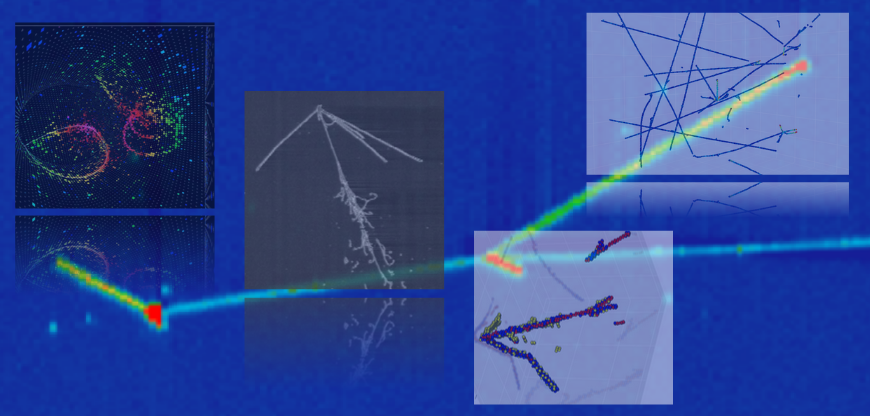Speaker
Description
Muon-pair production in $pp$ collisions through the Drell-Yan process provides an important tool for studying the internal quark-gluon structure of the nucleon. Precisely measuring the $\cos2\phi$ asymmetry, where $\phi$ represents the azimuthal angle of the $\mu^{+}\mu^{-}$ pair in the Collins-Soper frame, provides valuable insights into the proton's structure. Conventional methods for extracting the $\cos2\phi$ asymmetry typically employ unfolding techniques to map detector measurements to the particle level, followed by multi-dimensional fitting procedures. However, these traditional approaches face challenges in higher-dimensional phase spaces due to complex matrix operations. To overcome these limitations and improve parameter estimation accuracy, we propose a novel approach utilizing Deep Neural Networks (DNNs). DNNs excel in approximating nonlinear functions, making them well-suited for representing the full phase space in parameter extraction. We extract the $\cos2\phi$ asymmetry directly from the detector measurements using neural networks as likelihood functions, which are parametrized with Drell-Yan angular coefficients. In our presentation, we will discuss the design of the neural network architecture, elaborate on our training strategies, and outline our plans to achieve conclusive results using this novel approach with SeaQuest experiment data.



